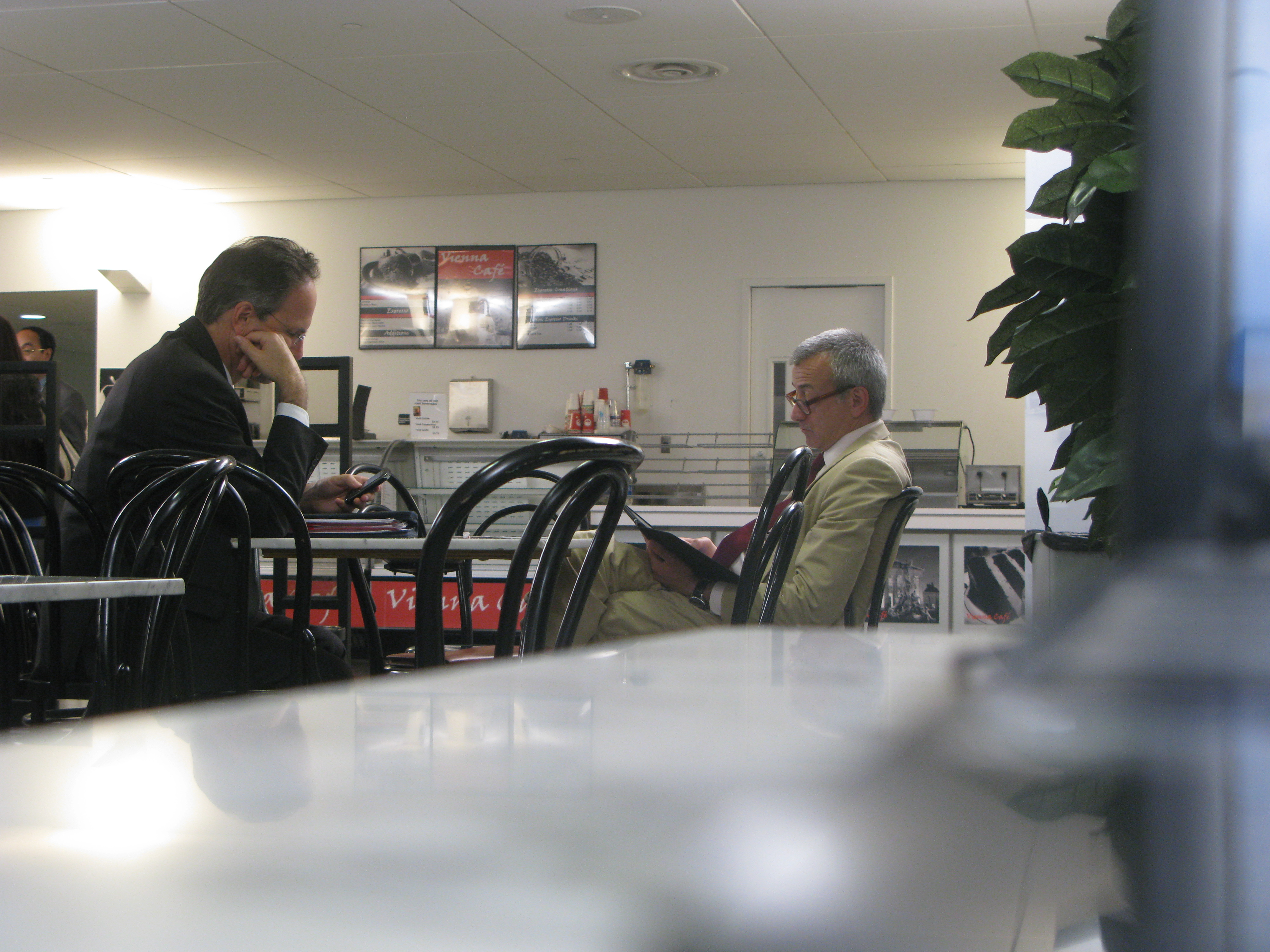In
UN Peacekeeping Budget Endgame, Payers Want $230 M, TCCs Want “57%
Raise," Midnight Deadline
By
Matthew
Russell Lee
UNITED
NATIONS,
June 30 -- As the clock moved within five hours of a
shutdown of UN Peacekeeping operations, negotiations continued on the
North Lawn building's second floor. Prominent among the “paying
countries,” as one European Permanent Representative called them,
were UK Deputy Permanent Representative Philip Parham and EU
Representative Serrano.
The
issue is money.
The developing world countries from which the vast majority of UN
peacekeepers come say they haven't had a raise since 2002. The
“paying countries” counter that there was an agreement in 2009 to
do a survey, but now the Group of 77 and China wants a “fifty seven
percent increase.”
The
paying
countries countered with the offer of a “one time bonus” and a
demand that some $230 million from closed-down peacekeeping missions
be returned. They complain that the G77 as a whole pays only 7.4% of
the UN peacekeeping budget, less that one of the loudest cost
cutters, France.
In
the recent
Security Council consultations to send Ethiopian peacekeepers into
Abyei in Sudan, France was said to question whether 4000 soldiers
would really be needed. Why not 3000? And now that the over 4000 were
approved, why not spread them out into Southern Kordofan?
It
is ironic that
a country so loud about human rights monitoring and the protection of
civilians -- to the point of using attack helicopters in Cote
d'Ivoire and dropping weapons into the mountains of Western Libya --
would behind closed doors be trying to nickel and dime UN
Peacekeeping.

UN June 30: UK Parham & EU Serrano, budget still not shown
But
this is where
it stands. It is predicted that a deal will be stuck before midnight.
Still and all the UN Department of Management says that this delay
means that payments will be made “manually,” at even greater
cost.
The
EU
diplomatically says it wants consensus. A prominent EU member intent
on cost savings says if the G77 “dares” to call for a vote, they
will regret it, it will highlight representation without taxation. Some
call it accountability, and others call it colonialism and
hypocrisy. Watch this site.
* * *
At
UN
on
Abyei Resolution, Western Delay on Budget & Bombing
By
Matthew
Russell
Lee
UNITED
NATIONS,
June
24 -- With much talk of the urgency of authorizing and
sending Ethiopian troops to Abyei in Sudan, a split has developed in
the Security Council about the timing and contents of the necessary
Council resolution.
Within
the
Council's
Permanent Five members, there's both support for adopting
the Abyei resolution on Friday June 24, to get the clock running.
Other P-5 members want a briefing from the Department of Peacekeeping
Operations and have an additional round of amendments.
Blame
for
delay is
usually cast on Russia and China, as on the moribund Syria
resolution. But in this case, the United Kingdom acknowledges having
more amendments, and not seeing a difference on the ground for
waiting until next week. Sources on June 24 told Inner City Press that
France too is for delay. French Ambassador Gerard Araud was observed on
June 22 outside the closed meeting on Darfur complaining about the
budget.
The
issues on
content involve not only whether and how much -- if any -- of the
criticism of Khartoum's bombing in Abyei and South Kordofan to
migrate from the draft Presidential Statement introduced earlier in
the week by the United States, but also what relation the Ethiopian
force will have with the post July 9 UN mission in South Sudan.
Some
feel
that
doesn't need to be decided at this time, in a way that results in any
delay of adopting the Abyei resolution authorizing the Ethiopian
troops to deploy to Abyei.
Following
the
UN's
confirmation this week of Inner City Press' scoop that Norway's
Hilde
Johnson has been tapped by Secretary General Ban Ki-moon to succeed
Haile Menkerios for the UN in South Sudan, seemingly at the request
of the US Mission and Ambassador Susan Rice, some pushback has
developed in the Security Council, where praise of Menkerios is
contrasted to Hilde Johnson's history as an advocate.
Ban's
spokesman
Martin
Nesirky said that the Council has been consulted or
coordinated with before Ban tapped Hilde Johnson. Comments on June 24
did not seem to bear that out. Watch this site.